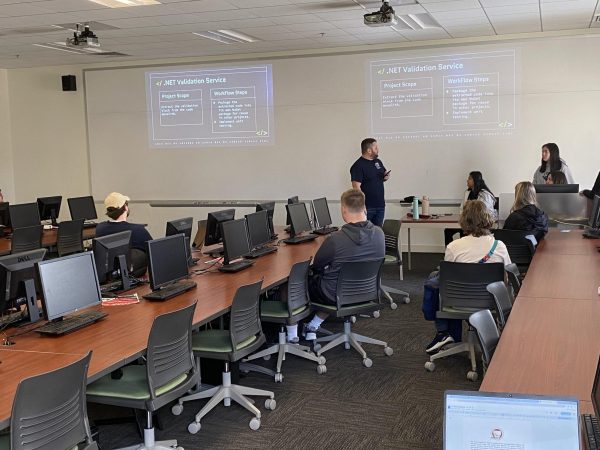University reports small number of scabies cases
University faculty, staff and students were notified Jan.25 by University Communications to be vigilant for the spread of a small number of confirmed cases of scabies.
Scabies, a skin condition caused by tiny bugs that burrow under the skin and lay eggs, is spread through prolonged contact with another infected individual, which includes sexual intercourse, sleeping in the same bed and sharing towel or clothing.
They are typically found between fingers, wrists, ankles, elbows, groin, armpits and breasts.
Scabies is common worldwide as millions of cases are reported each year according to the American Academy of Dermatology, but can rapidly spread in close living areas.
The individuals who have been confirmed with having the condition have been treated according to the notification and steps have been taken to prevent the spread of the condition.
The university has also identified those who may have been in close or direct contact with the individuals and cautionary measures are underway to ensure scabies is not spread to others.
Campus living spaces associated with those who were confirmed with the condition are being cleaned by off-campus organization Hasgoe.
“This is above and beyond what even the Centers for Disease and Control Prevention (CDC) would recommend,” Director of Housing and Residence life Amy Price said. “We are steam cleaning the carpets, cleaning all the furniture. I feel like that’s just a good route to take.”
Price said the first case of scabies was discovered late last week and a notification was sent out to everyone living on campus on Monday after more cases were confirmed.
She said scabies outbreaks have occurred before on campus, but they are usually designated to one or two apartments.
“When it has gone beyond one or two apartments, we talk about emailing everyone on campus so that people are educated about it,” she said.
Price said she could not disclose the buildings that have seen the outbreak of scabies or the number of cases “in order to protect the privacy of the students affected.”
“People that are in this situation are already a little self-conscious because of the attention that the campus has brought to this,” she said. “Anyone that has been affected by this has been contacted by our staff.”
Brandy Sitzman, the practice manager of the Health Center, said there has been a decrease in the number of scabies cases since last week, but would not reveal the number of cases they have seen.
“If they have the signs and symptoms of the scabies, we are encouraging them to contact their local health care provider or to come get checked out by us in the Health Center,” Sitzman said.
Additional information about scabies has been posted to the Health Center’s website at www.usi.edu/healthcenter.










